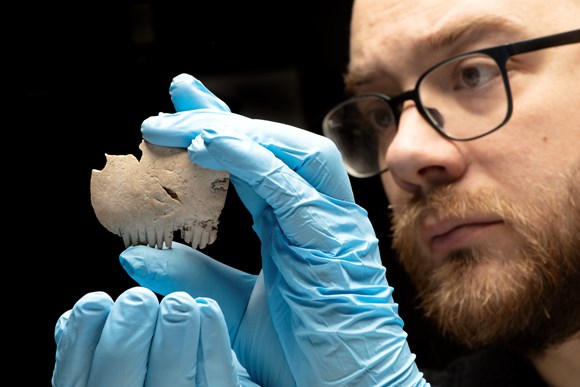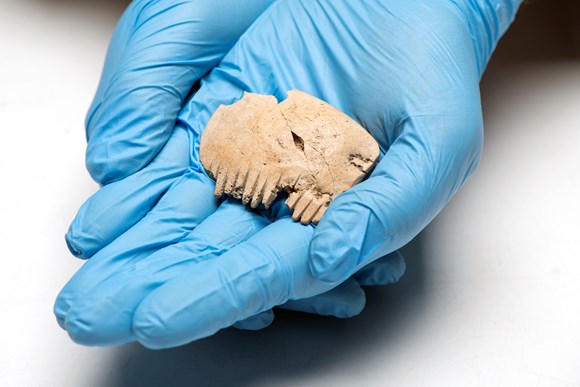Archaeologists at the archaeologists at Museum of London Archaeology (MOLA) have discovered an ancient bone carved from a human skull in the UK, which could answer questions about how ancient communities handled human remains.

Dating to the Iron Age (750 BC – 43 AD), the comb was unearthed just outside of Cambridge. Although appearing to take the shape and form of a comb, the exact use of the object – dubbed the ‘Bar Hill Comb’ – can only be theorised.
However, this rare artefact shines new light on ritual and belief in Iron Age Britain, including how human remains were looked after and sometimes modified within local communities.
Objects made from human bone may have been used in special rituals relating to the dead, but others were part of everyday life. For example, other archaeological excavations in Cambridgeshire have uncovered tools for cleaning animal skins made from human leg and arm bones.
‘It is possible this fascinating find represents a tradition carried out by Iron Age communities living solely in this area of Cambridgeshire,’ MOLA Finds Team Lead, Michael Marshall, speculates. ‘To be able to see such hyper-local influences in groups of people living over 2,000 years ago is truly astonishing.’

Marshall theorises the answer to the use of this object may lie in a circular hole drilled into the comb, allowing it to be worn as an amulet. Across Britain, there are many examples of pieces of human skull thought to have been worn as amulets. This connects to archaeological evidence across Iron Age Europe showing the collection, reuse, and display of human skulls – suggesting a widespread special significance to this portion of the human body.
‘The Bar Hill Comb may have been a highly symbolic and powerful object for members of the local community. It is possible it was carved from the skull of an important member of Iron Age society, whose presence was in some way preserved and commemorated through their bones,’ Marshall adds.
The Bar Hill Comb will now be kept at the Cambridgeshire Archaeology Archive, the main repository for the material found as part of archaeological fieldwork in the county. Whilst its true function and significance may never be known, research on the more than 280,000 artefacts recovered as part of archaeological excavations.
Pictures: MOLA
Follow us on social media for more travel news, inspiration, and guides. You can also tag us to be featured.
TikTok | Instagram | Facebook | Twitter
ALSO READ: Unusual activity in Norway as a meteor lights up the skyline
















